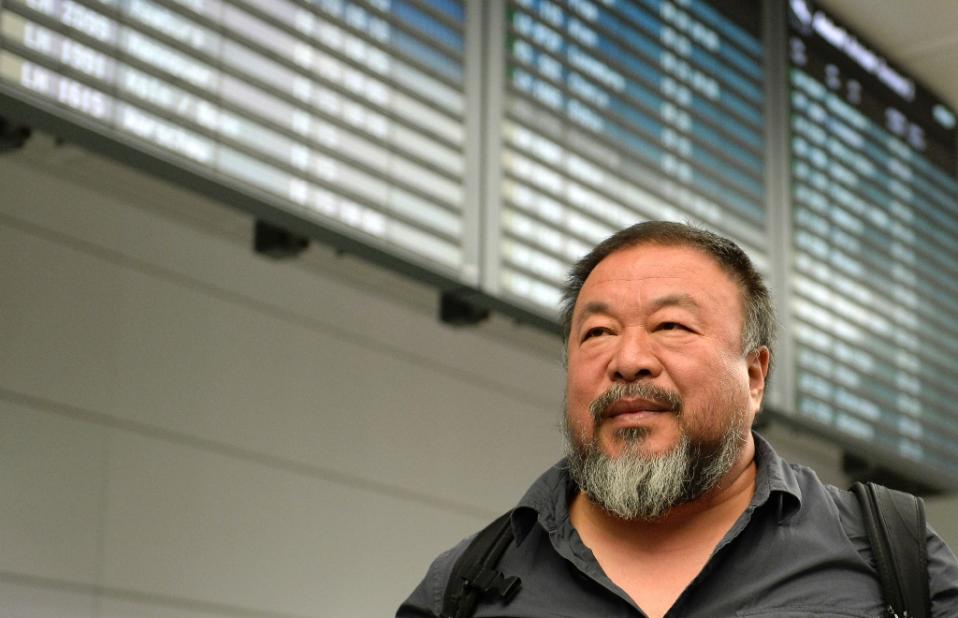BEIJING – On July 22, after four years, Ai Weiwei had his passport returned by Chinese authorities, but it is surprisingly now Great Britain that is restricting the artist’s free movement.
The Chinese artist, who sought a six-month stay in the United Kingdom surrounding the opening of his show in London, was told that his visit had been restricted due to a failure to declare his “criminal conviction” in China.

Ai Weiwei arrives in Munich, Germany, where he has been granted a four-year, multiple-entry visa in spite of Beijing’s history of attacks on the artist (Christof Stache, AFP.)
Ai, who was never charged or convicted of any crime in China or elsewhere, has been the subject of much political persecution at Beijing’s hand. He was detained and had his passport confiscated in 2011, after publicly making known his intent to open a second studio in Berlin. While he and eight assistants were arbitrarily detained during that time, neither Ai nor any of his colleagues were charged with any crime.
A letter addressed to and shared by the artist from the United Kingdom’s embassy in Beijing told Ai, “it is a matter of public record that you have previously received a criminal conviction in China, and you have not declared this.”
The letter’s writer went on to state that “exceptionally” Ai would be granted a stay of 20 days. In this way the British embassy made what should have been a simple acceptance into a highly restricted one, while painting a picture of itself as bending over backwards to accommodate the artist it just denied. Both Ai Weiwei himself and media representatives have enquired as to the charge which is supposedly “a matter of public record,” but no statement from the embassy has been released.
The reduced time of Ai’s stay in the country means that he will no longer be in Britain during Chinese president Xi Jinping’s visit to London in October.
As Britain attempts to strengthen political relations with China in light of increased economic ties, a protest by Ai Weiwei, long critical of the Communist Party, could prove to be a major diplomatic embarrassment. The wake of pro-democracy protests in the former British colony of Hong Kong has proved to be a major stressor on the countries’ relationship. Likewise, a 2012 meeting between Prime Minister David Cameron and the Dalai Lama infuriated the Communist Party. Through the denial of Ai’s visa, the United Kingdom was able to not show its support of one of Beijing’s longest critics.
Likewise, in framing the shortened term of stay as an exception to the rule, Britain can portray itself to be bending over backwards for the artist, while in truth that behavior is reserved for his work’s greatest enemy.
Ai Weiwei is currently in Germany, as Berlin found no issue with the artist’s supposed criminal past. It is his first time abroad in the four years since his passport was confiscated.
